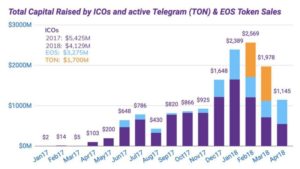Reg CF, turns two today. In 2012, President Obama gave the law “game changer” status and a ceremony in the Rose Garden. Six years hence, forecasts aren’t so rosy. Equity crowdfunding is changing the game despite SEC hostility.

Game Changer?
Industry professionals have lamented the SEC’s hostility to equity crowdfunding. As Edward Knight, Executive Vice President and General Counsel of NASDAQ, stated in a March 2017 congressional hearing:
From the outset the SEC’s view of [equity crowdfunding] was they were not for this they and made it, shall I say, needlessly complicated and did not approach it except as this this was something where the public is going to get harmed and we need to narrow it as m In uch as possible.
Reg CF languished for four years while the “hand wringing” Commission delayed and deferred.
Equity Crowdfunding growth comes in spite of “Shallow-End Jay” and the SEC
Despite this hostility, equity crowdfunding is slowly blooming and with some fixes, it can take off.
According to the Small Business Administration, Year One saw 326 equity crowdfunds. These raises totaled more than $30 million. By this January, that number had surpassed $100M with the average successful raise hitting $289K and the median $170K.
But overall the numbers fall short of forecasts. The SEC is trying to protect the little-guy investor. But it has stolen millions in capital from small and medium-size businesses while denying wealth creation for smaller investors.
Everyone knows the problems with equity crowdfunding
Everyone knows the culprit:
- SBA: “[G]iven the relatively limited reliance on equity crowdfunding in the first year, the SEC may want to consider whether certain aspects of the regulatory scheme are too complex or costly for small businesses to navigate and comply with.”
- Treasury Department: “However, in conversations with Treasury staff, market participants have expressed concerns about the cost and complexity of using crowdfunding compared to private placement offerings. Participants cited regulatory constraints, such as disclosure requirements and issuance costs, as well as structural factors, such as the challenges associated with having a large number of investors, as potentially limiting the use of this capital raising method.
- Crowdfund Insider (media): “The rule makers have undermined Reg CF with excessive rules and compliance mandates thus pushing away some issuers from allowing a wider audience take part in scalable businesses.”

SEC Chairman Jay Clayton
Let’s fix Reg CF Chairman “Shallow-End Jay” Clayton, here’s how.
Solutions to equity crowdfunding can happen at the SEC level
Solicitation Rules: Although often overlooked, the solicitation rules are terrible. Reg CF issuers can’t discuss the “terms” of the issue—the amount of securities offered, the nature of the securities, the price, and the closing date of the offering period—unless through a portal. The SEC claims it wants investors in the portals. But the effect is an absurd burden on issuers. Some lawyers discourage talking about the raise at all outside the portal. This makes no sense. Indeed, investors must purchase the securities through the portal, which shows them to all germane risks. Moreover, rules disallowing pre-launch publicity impede awareness of offers. And it ignores an avalanche of data on what’s needed to make them successful.
Investor restrictions harms those they are supposed to help
Investment Limits: The overall and individual investment limits also harm Reg CF. The $1M 12-month limit keeps larger institutional investors and ‘smart money’ sidelined. Higher limits could dovetail with complimentary raises either during or after an equity crowdfund like venture capital, investment banks, or private placement. Although few issuers hit the $1M limit, the possibility of bigger raises would incentivize bigger players to invest with smaller investors. Further, individual limits on accredited investors force them into Reg Ds. There they secure more favorable terms. According to portal giant Wefunder, “[W]e believe that retail investors are better protected when accredited investors invest side by side on the same terms, under the same exemption . . . [Currently] investors are often forced to directly contact the issuer and negotiate a separate Regulation D 506(c) deal.”
Accounting: GAAP accounting demands also hinder Reg CF. This burdens startups already taking a risk with extra costs. Entrepreneurs don’t have compliance divisions for the myriad regulations thrown at them.
The SEC must reshape its outlook
The SEC is stuck in the 20th century. The world is passing it by at ever-faster revolutions as George Gilder explained in ‘Life after Google.’ Its well-meaning concern for investors harms the very people it’s trying to shield. It also weakens our competitiveness against countries with advanced alternative capital-raising schemes especially the UK. When Chairman “Shallow-End Jay” Clayton launched his jihad against ICOs in January, capital raises fell drastically while limiting exciting deals to accredited investors.

Source: Token Data
Of course some ICOs are scams, and the SEC should prosecute fraudsters. But lots are just trying to follow rules the SEC refuses to clarify. (Kik is now in a major legal fight with the SEC). Now many ICOs are launching elsewhere. Some of Mr. Clayton’s colleagues understand this.
CryptoMom sees the issues “Shallow-End Jay” does not
Commissioner Hester Peirce aka CryptoMom recently seemed to rebuke Clayton’s ICO jihad while making a larger point about what the SEC shouldn’t be doing in their cop role:
The best path forward is for regulators to approach ICOs and tokens with intense curiosity. We must put in the effort to learn about these new technologies and employ the staff necessary to support our understanding. It is unfortunate that, to date, most of the communications from the SEC on the topic have come from our Division of Enforcement . . . we must be careful not to let our lack of familiarity with new technology breed anxiety and therefore bad regulation. There is a risk, when something truly innovative comes along, that regulators will focus only on the harms the innovation may bring and miss entirely the opportunity it presents to improve people’s lives.
The SEC should start by doing no harm
Equity crowdfunding has the potential to revolutionize capital formation. It can bring wealth and prosperity to businesses and even whole communities that languish under the current staid system. But it will only work when the SEC lightens the rules and lets the law work as intended.








